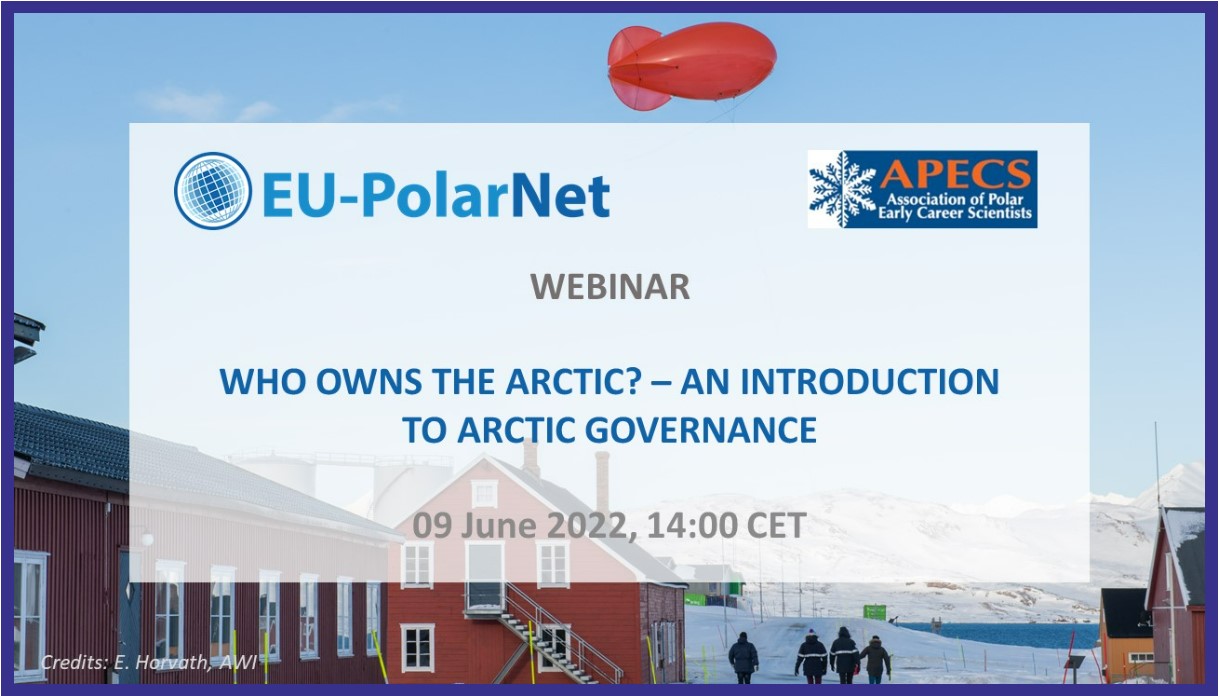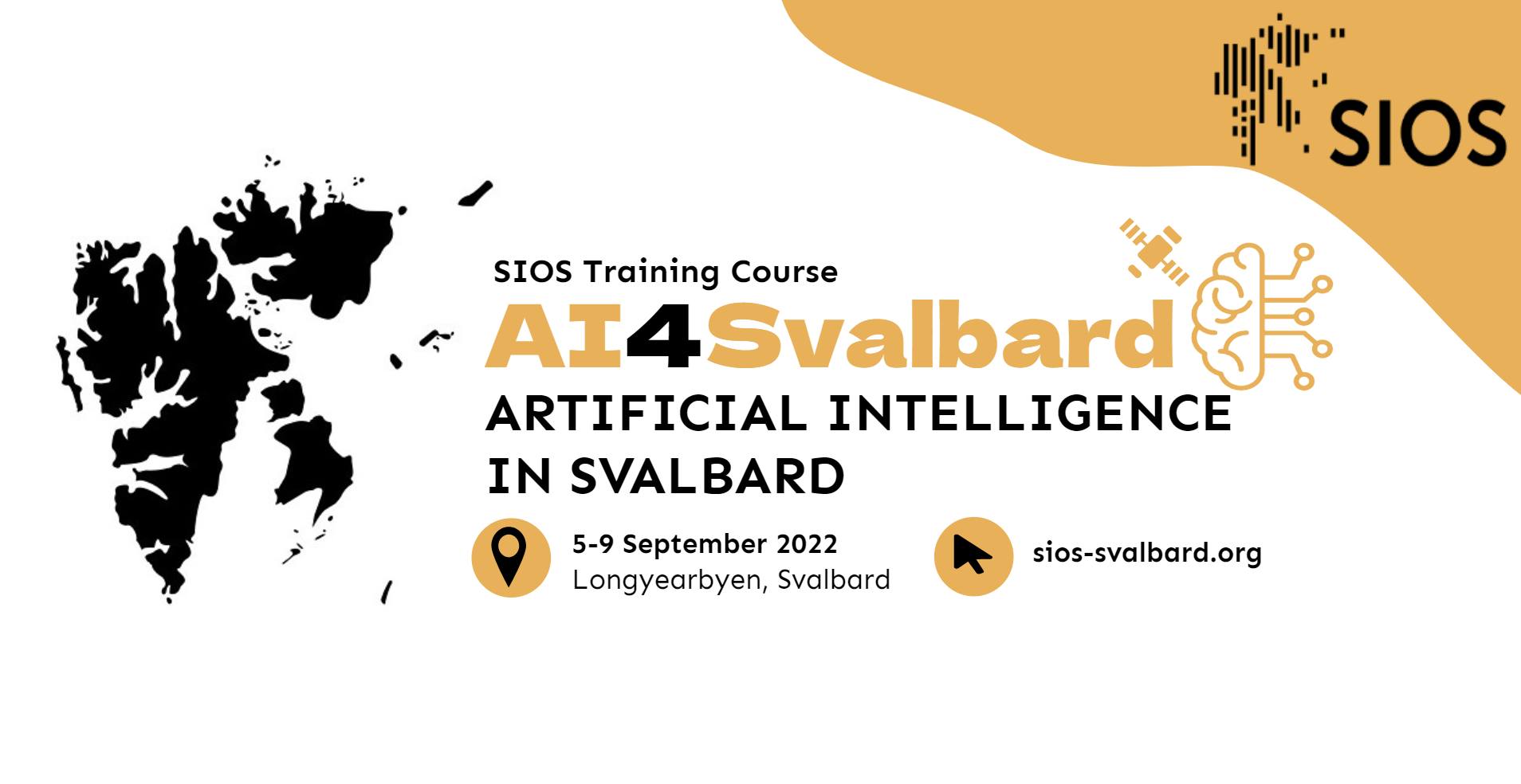This page shows individual project sessions, webinars, and workshops.
Collaborative sessions at major conferences etc. are listed separately, with more detail and links to session outputs.
Upcoming Cluster project events
BLUE-ACTION Climate Coffees – two Climate Coffees per month at 11:00-11:40am CEST on Thursdays
- Climate Coffees are brief chats with a highlighted speaker twice per month for 40 minutes on Thursdays. Brew up a mid-morning pick-me-up and come along to learn about climate research! Climate Coffees will return in September 2022
- Would you like to be a speaker for an upcoming Climate Coffee this fall? Please contact Chiara chb@dmi.dk
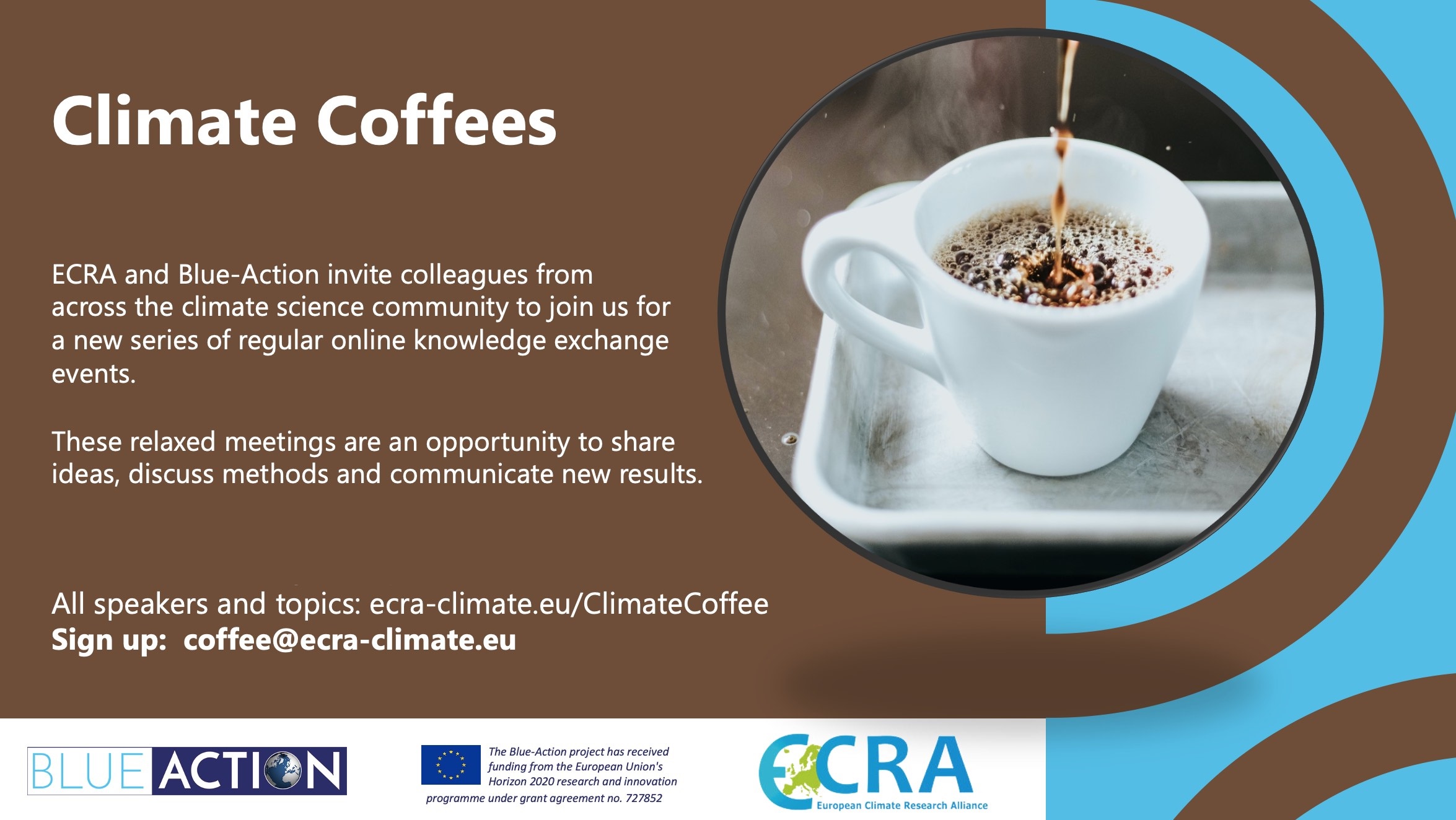
SIOS Online Conference on Earth Observation and Remote Sensing Application in Svalbard – 12-14 October 2022, Online – Abstract submission deadline: 25th August
- SIOS Knowledge Centre and the SIOS Remote Sensing Working Group invites abstracts from the Svalbard science community working on applications using Earth Observations (EO), Remote Sensing (RS), and Geoinformation (GI)
- We are pleased to announce this years’ conference on Earth Observation and Remote Sensing applications in Svalbard. This conference aims to:
- to romote the work of PhD students, postdocs, researchers, senior scientists, and academics who are actively contributing to the science of Svalbard
- review the state-of-the-art EO and RS applications in Svalbard
- Submit your abstract here by Thursday 25 August 2022: https://sios-svalbard.org/user/login?destination=/RS_OnlineConference_AbstractSubmission
- Registration for the conference will open 15 September Registration is free of charge and conference will be held via Zoom.
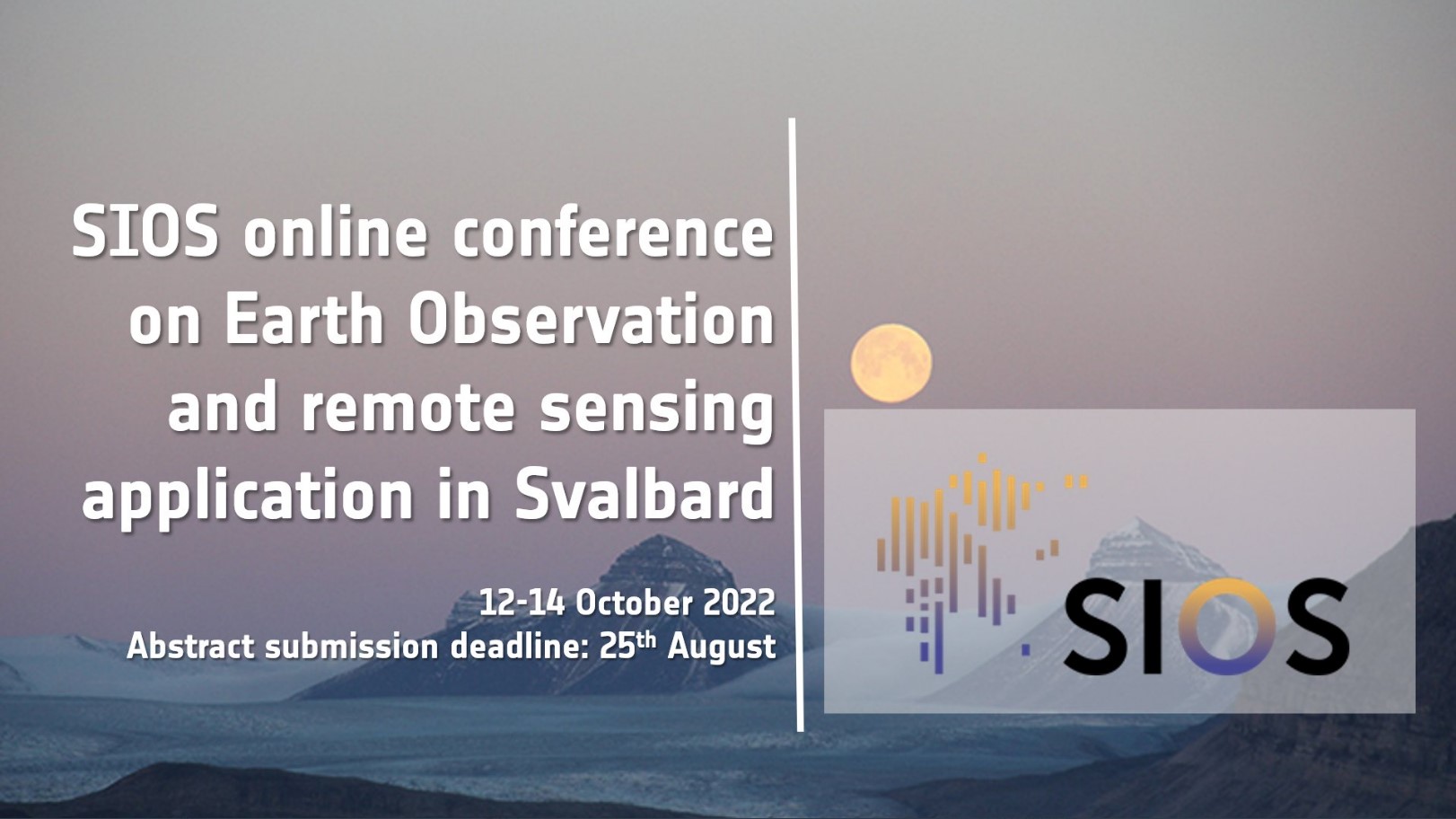
Recordings of past EU Polar cluster webinars
2022
EU PolarNet 2 General Assembly & Retreat 13-15 September 2022 in Sofia, Bulgaria
- We are very pleased to open the registrations for the General Assembly of our project on 13 September 2022 and the mid-term retreat of the project on 14 and 15 September 2022 at Grand Hotel Millennium Sofia in Sofia, Bulgaria (https://grandhotelmillenniumsofia.bg/). Arrival should take place on 12 September, departure will be possible from 15 September in the afternoon.
- The General Assembly is open to all project partners, Advisory Board members, Policy Advisory Board chairs and Polar Expert Group chairs and external collaborators. The Retreat will be Consortium only. The presence of AT LEAST ONE representative per partner on each of the days is mandatory.
- For any questions please do not hesitate to contact anneli.strobel@awi.de directly.
SIOS Knowledge Centre – Harmonising Environmnetal Research and Monitoring of Priority Pollutants in the Svalbar Atmosphere (HERMOSA 2022) – Research Workshop 12-15 September, Longyearbyen (Svalbard)
- Target audience: researchers interested in atmospheric aerosols, impurities and microbiology monitoring and sampling in Svalbard, or in the harmonisation of monitoring and sampling methods for those.
- Key note speakers:
- Radovan Krejci: Aerosol measurement SOPs (standard operation procedures), including direct aerosol measurements
- Roland Kallenborn & Krystyna Koziol: Summary from the SESS report on the harmonisation of atmospheric impurity sampling methods and monitoring across Svalbard
- Presentations from participants
- Participants are encouraged to deliver presentations during the seminar, with special interest in the atmospheric impurity monitoring activities, sampling techniques and observation results in Svalbard
- The workshop is jointly organised by the University Centre in Svalbard (UNIS, Norway); Institute of Geophysics, Polish Academy of Sciences (IG PAS, Poland), Gdańsk University of Technology (Gdańsk Tech, Poland), University of Perugia (UNIPG, Italy); University of Lyon (UL, France), Norwegian Institute for Air Research (NILU, Norway), Adam Mickiewicz University in Poznań (AMU, Poland) and Norwegian University of Life Sciences (NBMU). Support is given from Svalbard Integrated Arctic Earth Observing System (SIOS).
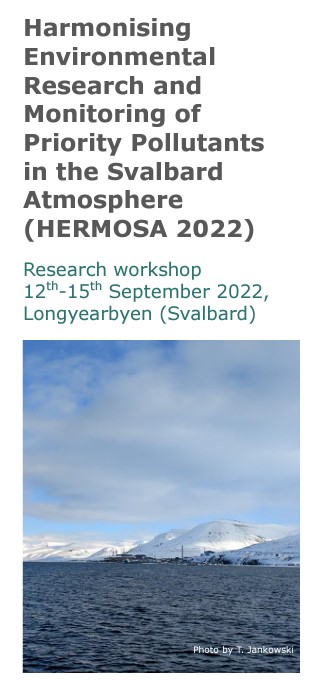
EU PolarNet 2: Who Owns the Arctic? Webinar 9 June 2022
- Due to the increasing interest and awareness of the global significance of the Arctic, questions about stewardship and governance of the region are being asked more frequently. Governance structures suitable for effectively addressing the challenges and opportunities facing the circumpolar North are becoming more relevant than ever.
- This webinar gives an overview of the legal regime of the Arctic and outlines the existing Arctic governance structures
- Featured speaker: Volker Rachold, Head of the German Arctic Office at the Alfre Wegener Institute
- Moderated by Nicole Biebow, Alfred Wegener Institute and EU-PolarNet 2 coordinator
- Watch the recording of this webinar here: https://youtu.be/jGPo6d8zEJk
EU PolarNet 2 Workshop: Recommendatinos towards an Integrated Polar Observing System
- EU-PolarNet 2 has arranged an online workshop aiming to facilitate better alignment of observing system efforts in the Arctic and Antarctic, and to create actionable policy-level recommendations to accelerate the development of an integrated polar observing system.
- The workshop consists of inspiring highlight presentations by various Arctic, Antarctic and Polar organizations, networks and projects across approaches, scales domains and services, and of in-depth breakout sessions to discuss and co-design the recommendations together with the workshop participants.
- EU-PolarNet 2 is a network to co-develop and advance the European polar research actions and to give evidence-based advice to policy making processes. The integrated polar observing system would, once operationa, provide a coordinated “system of systems” for continuous and standardized data and societally relevant information on the state of the polar regions.
- The polar research, observing and data communities, including both Arctic and Antarctic organizations, projects institutions and stakeholders working with observing systems at various domains and scales, are warmly to partcipate in the workshop and have their voices heard in co-designing the recommendations.
- The recommendations resulting from the workshop will feed into a white paper published in 2023 and distributed to wide ranged of policymakers and funding bodies. The workshop participants will have a possibility to join a task force preparing the white paper where the recommendations will be included.
- Watch the recording of this webinar here: https://youtu.be/Rjx50tAPSrc
Past Cluster project events
2022
- ARICE – 3D ICEBREAKER LAUNCH EVENT 17 June 16:00-17:15 (UTC+02:00) Online
- ARICE has developed a novel 3d icebreaker platform that will be launched at an event in the headquarters of CNR in Bologna, Italy
- The 3D icebreaker visualisation platform is part of ARICE’s aim at enhancing virtual and remote access to data in WP7.
- The goal of this WP is to establish the project data management system and to develop and adapt strategies and tools for efficient data access and data disseminatino.
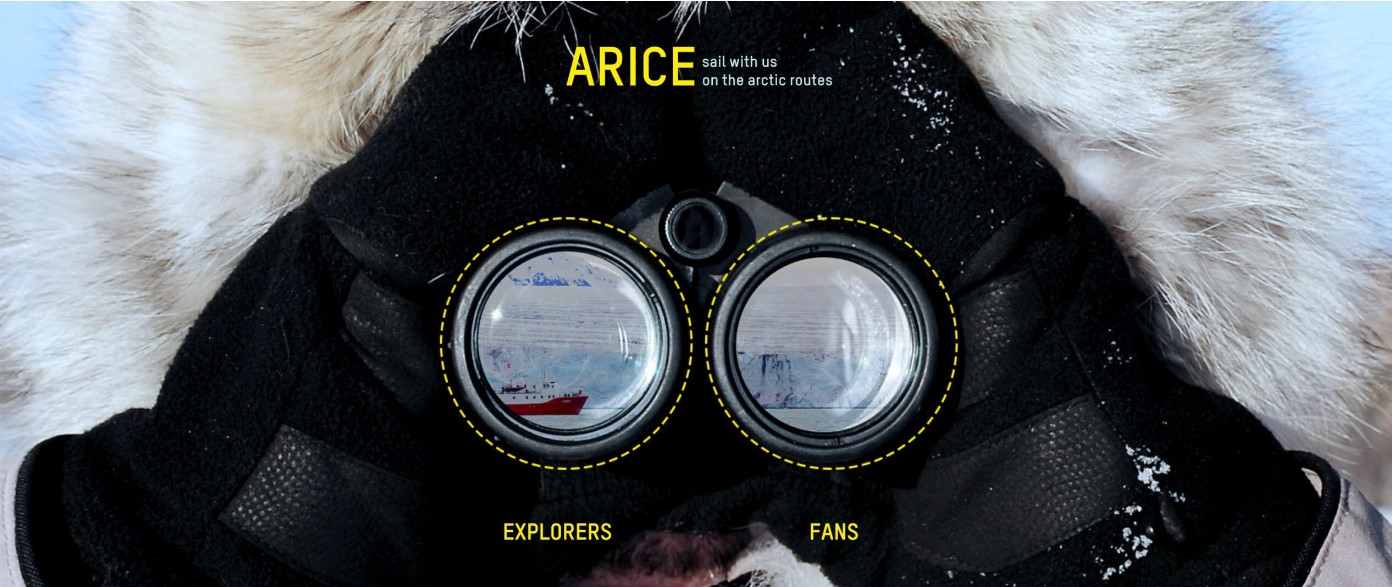
- PolarRES with the Future Generation – Polar Regions “In Our Hands” – Webinar 7 June 2022 18:30-19:30 CEST Online
- PolarRES will be hosting a series of webinars for our future generation. In support of Ukrainian youth, these webinars will teach young students (ages 14+) about the complexities of climate change and the physical processes which drive it. All students are welcome to join!
- Our first session Polar Regions “in our hands” will demonstrate peculiarities of the ocean circulation, causes of the sea level rise, ice melting, density stratification, thermohaline circulation, and rotating fluid features.
- We will discover three simple experiments on processes related to the ocean currents that can be done using household items. For the activity you will need:
- fresh water
- ice
- salt
- food dyes
- revolving cake stand (or similar alternative)
- This session will be led by one of our very own researchers Kateryna Terletska in cooperation with the Junior Academy of Sciences of Ukraine (JASU).

- Arctic PASSION – Scoping Workshop on Data-Driven Subnational Decision-Making 8th June 2022 17:00-20:00 CET via Zoom
- On June 8th we are hosting an online workshop to bring together local, regional and national decision-makers, experts and researchers to identify key issues between pan-Arctic observation systems and the needs of sub-national authorities and agencies.
- These issues will become topics for analysis and consecutive policy briefs, which we will elaborate on during the Arctic PASSION project. We are interested in learning about decision-makers’ needs and possible benefits from improved pan-Arctic observation and how local and regional decision-makers can contribute to integrated circumpolar observation and monitoring.
- The meeting will also serve as a platform connecting local and regional decision-makers with Arctic PASSION researchers. Arctic PASSION’s principle is co-production, so we would like to set the agenda for our work together with the representatives of local and regional authorities, administrations and agencies.
- The event programme will open with an overview of the outputs of Arctic PASSION that are of particular relevance for the local and regional decision-making in the Arctic. We will then proceed to the discussion of:
- Gaps and needs of decision-makers
- The role of national and international data platforms
- The challenges related to the readability of data, and
- The community-based observation and traditional knowledge in decision-making
- We will conclude with a discussion on themes the project should focus in relation to the needs of subnational decision-makers
- THE QUEST FOR THE OLDEST ICE IN ANTARCTICA – A webinar hosted by BeyondEPICA – 7 June 2022 2pm CEST via Zoom with Professor Barbara Stenni
- Barbara Stenni is professor of Geochemistry at Ca’ Foscari University of Venice in Italy
- Dr Stenni has more than 20 years of experience in the application of O and H isotopes in polar science paleoclimatology and has participated in several successful deep drilling projects in Antarctica (EPICA, TALDICE) and leading paleoclimatology projects focusing on the Holocene (ESF-HOLOCLIP) and the last 2000 years (PAGES Antarctica 2k)
- Now she is involved in the EU H202 Project “Beyond EPICA Oldest Ice Core: 1.5 Myr of greenhouse gas-climate feedbacks” and in the ITN H2020 DEEPICE
- Barbara Stenni is professor of Geochemistry at Ca’ Foscari University of Venice in Italy
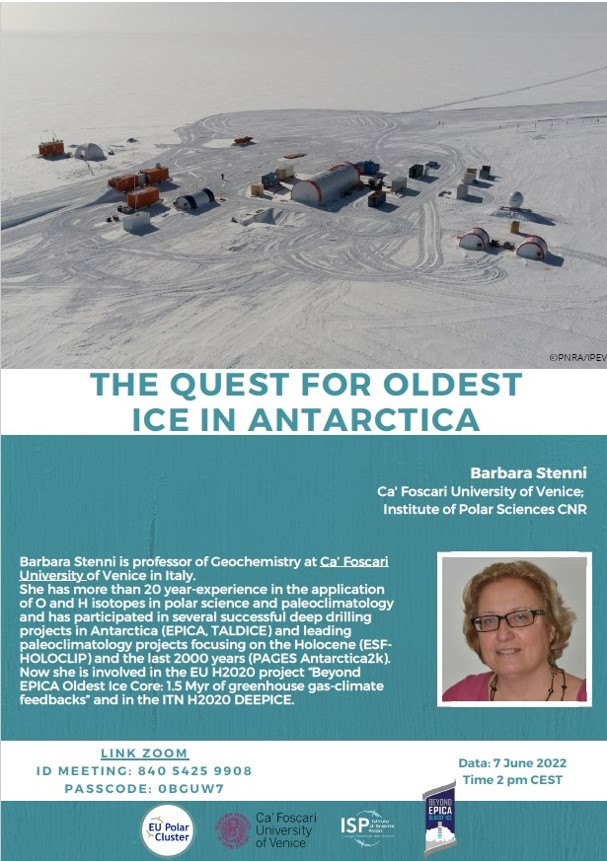
- EU-PolarNet 2 Workshop: Recommendations Towards an Integrated Polar Observing System – 7th June 2022 13:00-18:00 CEST via Zoom
- EU-PolarNet 2 will arrange an on-line workshop on 7th June 2022 at 13-18 CEST, aiming to facilitate better alignment of observing system efforts in the Arctic and Antarctic, and to create actionable policy-level recommendations to accelerate the development of an integrated polar observing system.
- The workshop consists of inspiring highlight presentations by various Arctic, Antarctic and Polar organizations, networks and projects across approaches, scales domains and services, and of in-depth breakout sessions to discuss and co-design the recommendations together with the workshop participants.
- EU-PolarNet 2 is a network to co-develop and advance the European polar research actions and to give evidence-based advice to policy making processes. The integrated polar observing system would, once operationa, provide a coordinated “system of systems” for continuous and standardized data and societally relevant information on the state of the polar regions.
- The polar research, observing and data communities, including both Arctic and Antarctic organizations, projects institutions and stakeholders working with observing systems at various domains and scales, are warmly to partcipate in the workshop and have their voices heard in co-designing the recommendations.
- The recommendations resulting from the workshop will feed into a white paper published in 2023 and distributed to wide ranged of policymakers and funding bodies. The workshop participants will have a possibility to join a task force preparing the white paper where the recommendations will be included.
- EU-PolarNet 2 will arrange an on-line workshop on 7th June 2022 at 13-18 CEST, aiming to facilitate better alignment of observing system efforts in the Arctic and Antarctic, and to create actionable policy-level recommendations to accelerate the development of an integrated polar observing system.
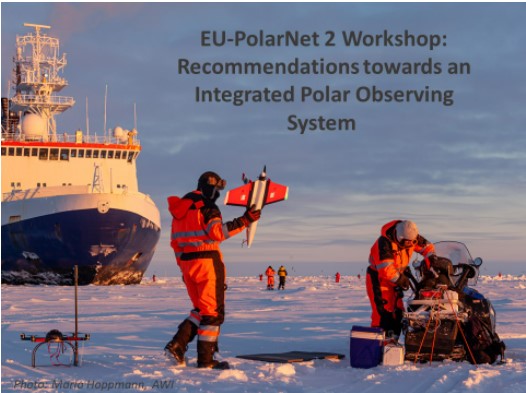
- SO-CHIC Town Hall Session at EGU 2022: The Southern Ocean & the Global Climate System – Thursday 26th May 2022 19:00 CEST Online or Austria Center Vienna
- Featured speakers:
- Nadine Steiger, University of Bergen
- Shenjie Zhou, British Antarctic Survey
- Holly Ayres, University of Reading
- Marcel du Plessis, University of Gothenburg
- Register here: https://egu22.eu/register_and_venue/registration.html
- Featured speakers:
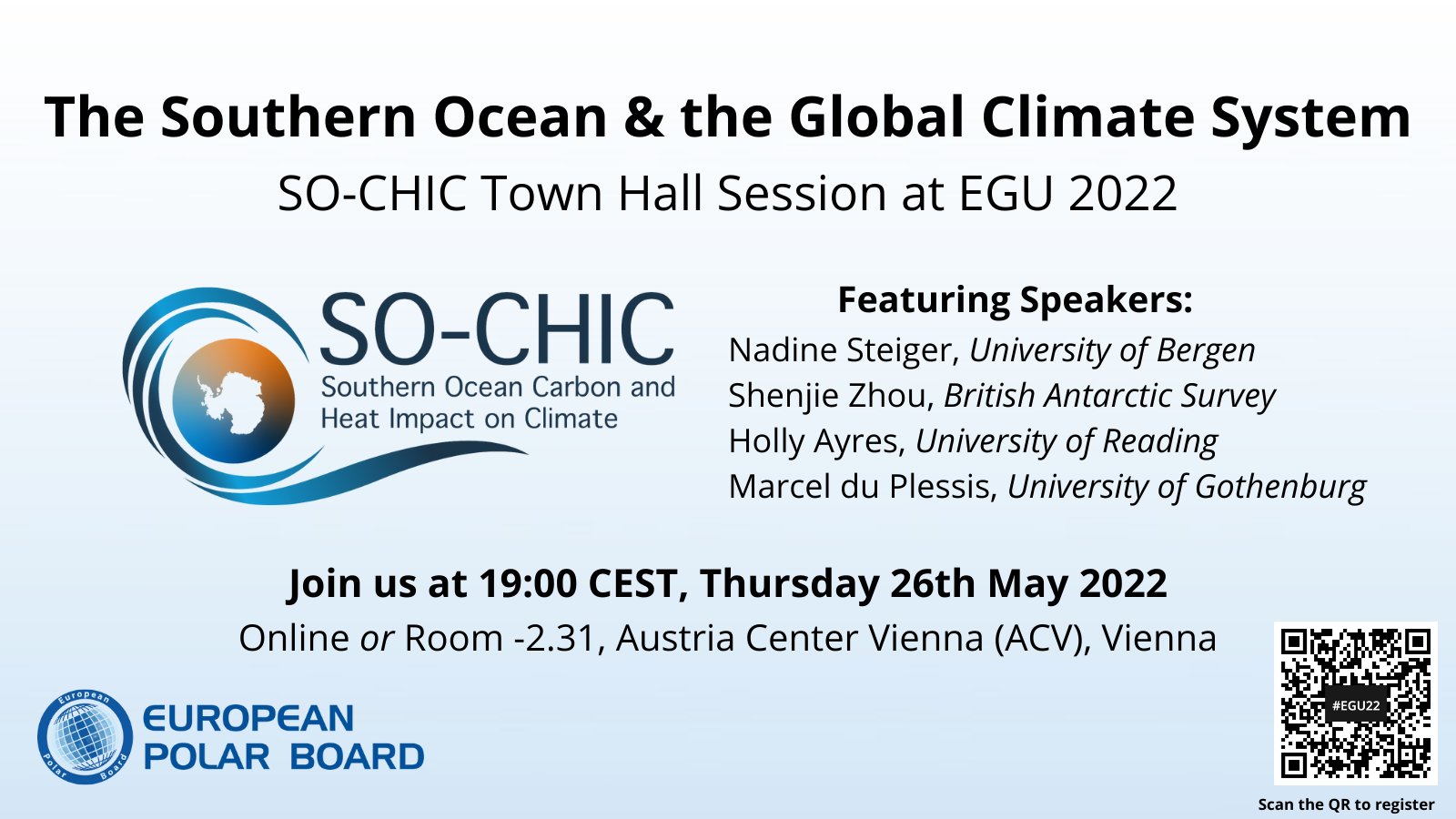
- PROTECT Webinar – Sea-level rise: what is new in the IPCC 6th Assessment report? Monday 30 May 3pm CEST
- Gonéri Le Cozannet (BRGM) and Aimée Slangen (NIOZ) will present what is new in the IPCC 6th Assessment report concerning the latest estimates for sea level rise and coastal adaptation
- Zoom link: https://univ-grenoble-alpes-fr.zoom.us/j/93828576008?pwd=RlJ3RFNkZloySDFPSkRsMTFlcTQwZz09
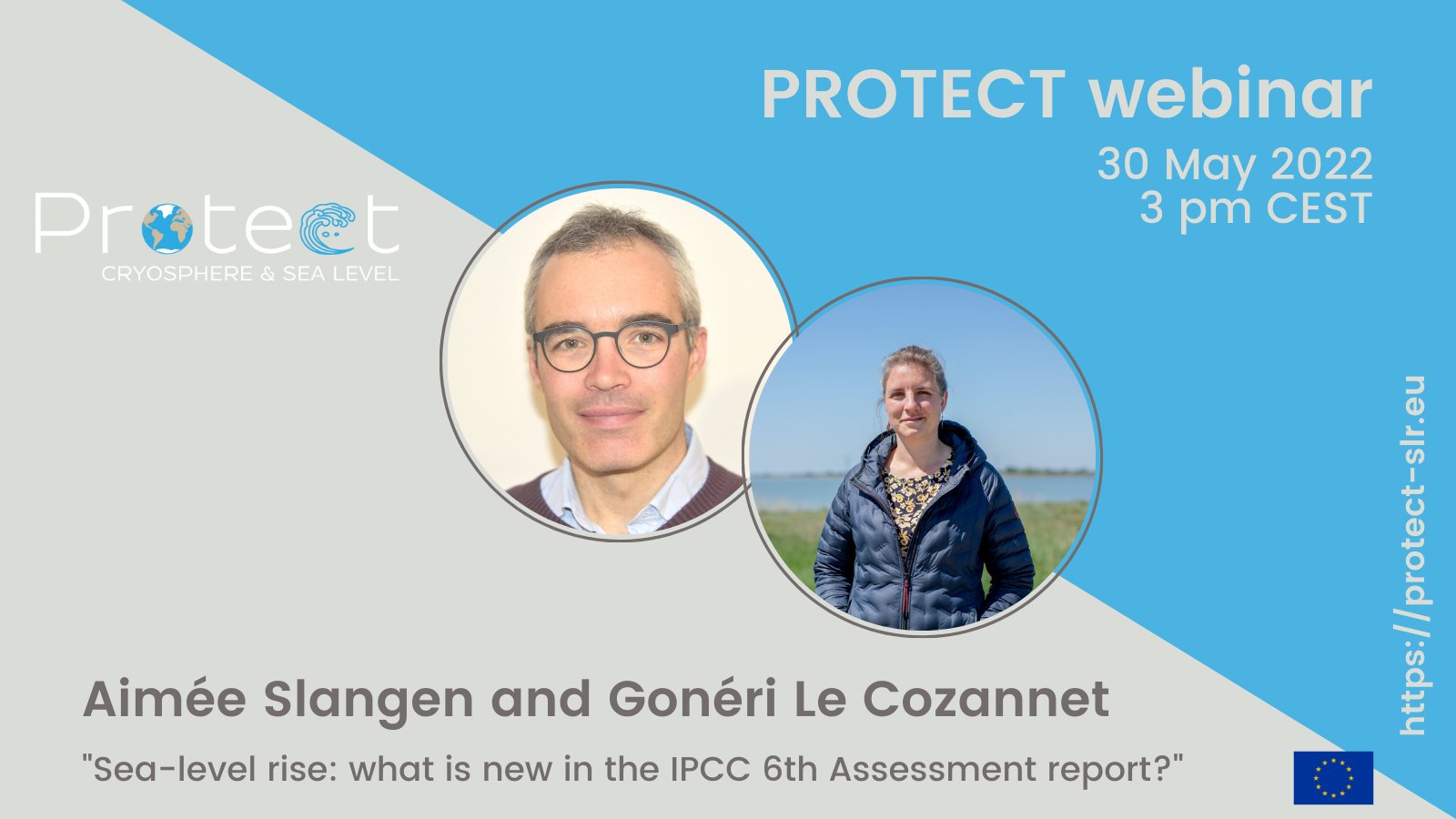
- SIOS Knowledge Centre Training Course – AI4 Svalbard – DEADLINE TO REGISTER 15 MAY
- SIOS Knowledge Center will offer a training course on how to effectively use artificial intelligence methods in Arctic Earth Observation
- Course 5-9 September 2022 in Longyearbyen, Svalbard
- Find out more here: http://sios-svalbard.org/AI4Svalbard
- BLUE-ACTION Climate Coffees – two Climate Coffees per month at 11:00-11:40am CEST on Thursdays
- Thursday 5 May 2022 – David Docquier (Royal Meteorological Institute of Belgium)
- Ocean – Sea Ice – Atmosphere interactions measured by the rate of information transfer
- Link to Eventbrite where you can sign up: https://www.eventbrite.dk/e/<wbr />ocean-sea-ice-atmosphere-<wbr />interactions-tickets-<wbr />287819424647
- Thursday 19 May – Dider Wingedouw (University Bordeaux)
- AMOC Recent and Future Trends: A crucial role for the oceanic resolution and Greenland melting
- Thursday 2 June – Leneisja Junsberg (Nordregio and NUNATARYUK)
- Climate Science, Social Science in the NUNATARYUK Project (TBC)
- Thursday 5 May 2022 – David Docquier (Royal Meteorological Institute of Belgium)
- Arctic PASSION – Polar Forum Ikaaġavik Sikukun – Ice Bridges 12:00pm Friday 15 April via Zoom
- By Alex Whiting, Donna Hauser, Ph.D, and the Native Village of Kotzebue Elders
Ikaaġvik Sikukun —Iñupiaq for ice bridges— is a research effort in Kotzebue, Alaska that connects the community with scientists to understand sea ice change in Kotzebue Sound. - Join Alex Whiting, Environmental director at Native Village of Kotzebue, Donna Hauser, Research scientist at University of Alaska Fairbanks, focusing on marine mammal ecology, and Elders from the Native Village of Kotzebue for a presentation and open conversation on bridging the scientific and Indigenous communities’ knowledge of sea ice change in the Alaskan Arctic.
- By Alex Whiting, Donna Hauser, Ph.D, and the Native Village of Kotzebue Elders
- EU Polar Cluster at ASSW 2022 26 March – 1st April Tromsø, Norway – Multiple Groups organised sessions, workshops and posters
- EU-PolarNet 2 – Planning meeting 27 March 14:00-18:00 CEST – More info here
- Arctic PASSION – Workshop: Establishing the Distributed Biological Observatory System in the Atlantic Sector of the Arctic Ocean – 28 March 9:00-15:30 CEST Find the agenda for this event here
- INTAROS – Webinar: Selected Results from the INTAROS H2020 Project 2016-2022 28 March 9:00-13:00 Find the agenda for this event here
- SIOS – Science Day 2022 Poster session – 29 March 16:00-18:00 Earth Observation and Remote Sensing Activities to Develop an Efficient Regional Observing System in Svalbard: Experiences from the SIOS remote sensing working group (RSWG) See the poster here
- European Polar Board – Looking Back and Ahead – 29 March 14:00-15:30 CEST Find more information about this session here
- European Polar Board – Introducing Polardex: Database of polar research and infrastructure and planned routes 29 March 16:00-18:00 CEST Find more infomration about this session here
- INTERACT Transnational Access User Community – 29 March 9:30-13:00 CEST Find more information about this session here
- SIOS – Diversity, equity, inclusion and field safety: An Arctic Perspective 29 March 13:00-15:00 CEST Find more information about this session here
- EU-PolarNet2 – Workshop: Norwegian contributions to networking and polar research in Horizon Europe – 30 March 14:00-18:00 CEST – find more information about this event here
- CAPARDUS – Workshop 31 March 2022 14:00-18:00 Find the agenda for this event here

- APECS-ARICE Webinar: 28th February 13:00-14:00 GMT – Are we losing a sink for atmospheric trace gases? Nitrous oxide in the Arctic marine ecosystem.
- The ARICE-funded project “TRace gAses Cycling in the Arctic marine Ecosystem (TRACE)” focused on the biogeochemical cycling of climate-relevant atmospheric trace gases at the sea-air and sea-ice interfaces in the Arctic Ocean. During this webinar we will focus on nitrous oxide (N2O), which is a potent greenhouse gas and currently the most important ozone-depleting compound in the stratosphere.
- Although the ocean is generally acknowledged as an overall source of N2O, at regional and basin-scales there is a large range of variability in terms of its sources and sinks, which in turn, poses challenges to theaccurate assessment of its role on the marine nitrogen cycle.Environmental changes such as warming and decrease in sea ice coverage are expected to affect production/consumption pathways of N2O, but the direction of the future trends is highly uncertain. We conducted a thorough survey of N2O across the sea-ice-air interfaces within the context of the ODEN expedition in 2021, as a contribution to the Synoptic Arctic Survey (https://synopticarcticsurvey.w.uib.no/).
- Speakers are Damian L. Arévalo-Martínez (GEOMAR) and Lina Holthusen (GEOMAR)
- Moderation: Franziska Pausch (ARICE, AWI & APECS)
- To join the webinar, please register via this link and you will receive the link to the webinar afterwards: https://us02web.zoom.us/webinar/register/WN_XrcP5b7zQY21_bHVrssd1g
- The ARICE-funded project “TRace gAses Cycling in the Arctic marine Ecosystem (TRACE)” focused on the biogeochemical cycling of climate-relevant atmospheric trace gases at the sea-air and sea-ice interfaces in the Arctic Ocean. During this webinar we will focus on nitrous oxide (N2O), which is a potent greenhouse gas and currently the most important ozone-depleting compound in the stratosphere.
- Arctic PASSION Online Seminar and Dialogue Series Online – 22 and 24 March 2022 14:00 GMT- We are happy to announce the first Arctic PASSION webinars – starting with a two-part kick-off seminar on science communication during International Polar Week! Both seminars are independent of each other and either both or only one can be attended. These seminars are free and open to anyone, and will last between 1 and 1.5 hours. The Online Seminar and Dialogue Series is a tool to communicate project’s topics, share ideas, plans and results, and to initiate an inclusive and proactive dialogue with people from different groups, backgrounds and career levels. It is targeted to Arctic and Indigenous Youth, Early Career Scientists and other interested audiences. Speaker – Olivia Rempel (GRID-Arendal)
- Part 1 – Storytelling in Science – 22 March 2022 14:00 GMT – Have you ever wondered why certain research projects get picked up in the news and not others? Or how some researchers manage to produce science content that goes viral on social media? Sure, part of it is luck, but another part of it is storytelling.
- By framing your research in a different way, you can increase the chances that your story gets picked up, or that your social media gains a following.
- This webinar will give you the tools to tell the stories about your research intentionally, identifying newsworth stories, who’s your audience, what medium best fits your story, and considering whether you want to pitch your story to journalists, or perhaps using your own media production skills, and posting it to social media.
- Join online via Zoom: https://us02web.zoom.us/webinar/register/WN_-hXn6AaCQaCpWcApoPbidQ
- Part 1 – Storytelling in Science – 22 March 2022 14:00 GMT – Have you ever wondered why certain research projects get picked up in the news and not others? Or how some researchers manage to produce science content that goes viral on social media? Sure, part of it is luck, but another part of it is storytelling.

-
- Part 2 – Media Production in the Field – 24 March 2022 14:00 GMT – So, you’ve identified your story and how you want to tell it, but now you’ve got to actually go out there and gather the media, on top of doing your actual research! In Part 2 of our Polar Week sci comms webinar we will go over how to gather media in the field.
- We will cover how to identify your story’s needs and how to put together a production plan that allows you to work smarter, not harder.
- We will also go over some basic photography and videography best practices, what kind of shots to gather, how to prepare for an interview, and some tips on how best to record audio (because remote interviews aren’t going anywhere any time soon).
- Join online via Zoom: https://us02web.zoom.us/webinar/register/WN_9fntuy5rRSKqZOvg
- Part 2 – Media Production in the Field – 24 March 2022 14:00 GMT – So, you’ve identified your story and how you want to tell it, but now you’ve got to actually go out there and gather the media, on top of doing your actual research! In Part 2 of our Polar Week sci comms webinar we will go over how to gather media in the field.

- INTERACT and the British Antarctic Survey – Machine learning demonstration – online via Zoom 7th February 14:00-17:00 CET
- Work Package 6 aims to explore applied artificial intelligence and machine learning on climate changes, and most importantly aiding researchers monitoring changes in climate. Specifically, this demo is about using machine learning on example data to make specific algorithms and methods available, and demonstrate the outcome. As such, we would like to invite you to a demonstration of the work we have conducted with regards to:
- Computer vision – tools to automatically caterogise and identify projects in photographs
- Natural Language Processing – automatically summarising texts extracted from photographs of log books
- Alternative tools for those of you who find programming intimidating
- Find the link to the demonstration via Zoom here: https://us02web.zoom.us/j/84381703524
- Work Package 6 aims to explore applied artificial intelligence and machine learning on climate changes, and most importantly aiding researchers monitoring changes in climate. Specifically, this demo is about using machine learning on example data to make specific algorithms and methods available, and demonstrate the outcome. As such, we would like to invite you to a demonstration of the work we have conducted with regards to:
- CHARTER is hosting the 10th National Snow Seminar via Zoom 2nd February 2022 – 9:15-16:45 EEST (Helsinki time)
- Part I: Remote online-event via Zoom – Register here – https://docs.google.com/forms/d/e/1FAIpQLScbYpe9jOwprqRmVCHgpRYSXDiNjthSdnnLG7Kmin7QT-ps_g/viewform
- Part II: Celebrating the 10th Snow seminar with a workshop and a “Science Meets Art” exchibittion followed by dinner is postponed to later in the spring – date TBA and will be held in a hybrid format
- Find the programme to the event here: Agenda – Snow Seminar 2022 – v26.01.2022.pdf
- SIOS KNOWLEDGE CENTRE – The State of Environmental Science in Svalbard (SESS) Annual Report Release for 2021 – Monday 24th January 2022 online – The SESS report release will be streamed on YouTube, the link to the stream will be shared 15 minutes before the event begins.
- Programme: (All times in CET)
- 10:00-10:30 Opening of the SIOS Polar Night Week 2022
- 10:30-11:30 Release of the 2021 State of Environmental Science in Svalbard (SESS) report. The authors will present their chapters for this years’ report.
- The State of Environmental Science in Svalbard (SESS) is an annual report produced by Svalbard Integrated Arctic Earth Observing System (SIOS). It contains information about some of the key Earth System Science parameters in the Svalbard region.
- More about SESS-2021: https://sios-svalbard.org/SESS_Issue4
- Link to the event on Facebook: https://www.facebook.com/events/237431311904363
- Programme: (All times in CET)
- NUNATARYUK at Arctic Frontiers: 31st January – 3rd February 2022 – Session 3: Arctic Costs in Transition We envision a highly interdisciplinary session, including perspectives from across the Arctic, and welcome contributions on topics including, but not limited to:
- environmental and societal drivers of Arctic coastal change;
- physical change of Arctic coasts–coastal dynamics and rates of change;
- impacts on coastal ecosystems and local Arctic communities;
- supporting sustainable planning, management, mitigation and adaptation measures for an Arctic coast in transition.
- Call for Community Input – Arctic Observing Summit 2022 – Arctic PASSION. Deadline to submit input: 15th January 2022.
-
Please consider contributions from Arctic PASSION. https://iasc.info/news/iasc-news/890-arctic-observing-summit-2022-aos-2022-call-for-community-input There are several working groups who will offer meeting sessions at the AOS. The working groups are currently in the planning phase and we have Arctic PASSION partners thankfully involved in the planning of all of them
- Regional to Global Observing
- Food Security
- Data Sharing
- System Integration
- Utility and Benefits
- Capacity Building
- You can find more info on the working groups and the conference on the website https://arcticobservingsummit.org/summits/aos-2022/
Deadline to submit input: January 15th, 2022 Poster abstract submission deadline: Jan 30th, 2022. Please contact Luisia Cristini or Michael Karcher if you intend to submit contributions.
-
- PROTECT Webinar – What do Stakeholders want from sea-level rise scenarios: a consultative analysis. Online – 10th January 2022 3pm CET. Over the coming decades, sea-level rise projections and knowledge of their uncertainties are essential for coastal planners to make informed mitigation and adaptive decisions. A key aspect of the PROTECT project is the interaction between these practitioners and sea-level scientists (ranging from glaciologists to coastal impact specialists) to develop robust and reliable projections which are readily understood, shared and applied.
2021
- APECS-ARICE Webinar: NoTAC Cruise, RV Kronprins Haakon (No) – How to Measure Water Exchange in the Fram Strait Using Novel Tracers? 2nd December 2021 13:00-14:00 GMT/14:00-15:00 CET The ARICE funded NoTAC project (Novel Tracers of Arctic Carbon and water exchange in the Fram Strait) is an international collaboration across several institutions from Denmark, Finland, Poland and USA with a diverse team varying from early career (ECS) to senior scientists. The project focuses on assessing the application of novel, cost-effective water masses tracers, with special interest in tracking the Arctic outflow entering the Atlantic basin through a major gateway, the Fram Strait. Those tracers are, for example, dissolved organic matter composition, lignin phenols, radioisotopes, optical properties of water masses and microbial community (with focus on phytoplankton and bacteria). Apart from the tracer component, the project also has another component focused on the cycling of carbon and nutrients in the region, which are assessed through experimental work conduct during the Fram Strait cruise.
- In this webinar, we presented the project itself, as well as the logistic challenges faced during the preparation for two cruises during the COVID-19 pandemic, including a remote participation in the 2020 cruise. We will also report on the work conducted on board and preliminary results.
- Speakers are Rafael (Rafa) Gonçalves-Araujo (DTU Aqua) and Lumi Haraguchi (SKYE).
- Moderated by Franziska Pausch (ARICE, AWI & APECS)
- Find more information here: https://arice-h2020.eu/apecs-arice-webinar-notac-cruise-rv-kronprins-haakon-no-how-to-measure-water-exchange-in-the-fram-strait-using-novel-tracers/
- Arctic PASSION at the Arctic Observing Summit Early Career Co-Chair Q&A Webinar Tuesday 30th November 2021 4pm GMT/5pm CET – A not-to-be-missed opportunity for early career researchers to get involved with the upcoming Arctic Observing Summit (30th March – 1st April 2022 in Tromsø, Norway). The AOS2022 invited Early Career Co-Chairs to contribute to the planning of the summit, help record and distill the conversations happening in the working groups sessions at the summit, and contribute to the working group reports and final products. There will be one Early Career Co-Chair per working group:
- Find more information here: https://www.apecs.is/news/apecs-news/4846-arctic-observing-summit-2022-call-for-early-career-co-chairs.html
- Arctic Hubs WP1 Webinar – Global Drivers and the Future of Key Industries in the European Arctic – Tuesday 30th November 11:00am CET Online via Zoom Building sustainability and resilience across the European Arctic. Globalization is not a singular driving force. Instead, it consists of different kinds of international processes and challenges that may dfy a strictly local solution due to their complexity. Climate change is just one example. The Arctic of the 2020s cannot be understood without placing it in the context of global linkages and processes that shape its future and fortunes. Knowledge about global drivers and their local impacts is needed for a transition to a more sustainable future.
- The aim of the workshop was to present WP1 research about trends, weak signals and wild cards impacting Arctic industries. Furthermore, the global drivers affecting the futures of the people living in the European Arctic will be discussed.
- JUSTNORTH Conference 2021, Toward Just, Ethical and Sustainable Arctic Economies, Environments and Societies: 15th November 2021, Rovaniemi Finland Arctic development of the past is persistent in inequitable practices, leaving scars from the impacts of social, economic and environmental inequality. In addition, Arctic development of today is occurring alongside the adverse effects of climate change within an integrated global system deficient in mechanisms for incentivising just transitions toward sustainable development. With the goal of enhancing the governance capacity of the EU to mitigate this problem, JUSTNORTH brought together 13 partners from 7 disciplines to evaluate the viability of Arctic economic activities. Find more information here: https://justnorth.eu/2021/10/01/justnorth-conference-registration/
- Blue-Action Workshop at COP 26 “Ocean Connections from the Arctic Across the Globe”: 4th November 2021 with Marine Science Scotland and Group for High Resolution Sea Surface Temperature, an international community funded by Copernicus/EUMETSAT. We would like to invite you to join us! https://www.eventbrite.dk/e/ocean-connections-from-the-arctic-across-the-globe-cop26-tickets-195734787017
- EU PolarNet 2 General Assembly 25th and 26th October:
- Monday, 25 October 2021, 13:15 CET: General Assembly with guest speakers, progress update of the work packages. Open to all interested.
- If you are interested in attending the EU-PolarNet 2 General Assembly on 25th October, please register here by 21st October: https://eu-polarnet2_2nd-general-assembly_25-10-2021.eventbrite.ie
- Tuesday, 26 October 2021, 12:45 CET: 2nd part of the GA, discussion sessions of the different work packages. Open to whole consortium and guests interested in discussing and contributing to one of the work packages.
- (For information: Wednesday, 27 October 2021, 09:00 CET: Joint EU-PolarNet 2/EPB session on the development of the European Polar Coordination Office (EPCO). Open only to the EU-PolarNet 2 consortium and EPB Plenary.)
- Monday, 25 October 2021, 13:15 CET: General Assembly with guest speakers, progress update of the work packages. Open to all interested.
- CHARTER – FIRST CHARTER GENERAL ASSEMBLY 4 – 6th October 2021, Helsinki, Finland. The CHARTER project is now entering its second year and this makes it time for our 1st General Assembly! A final version of the programme is available on the internal page of the CHARTER website. The Assembly is for project participants only, but we will be reporting outcomes and stories from the Assembly over the coming weeks, including a new CHARTER newsletter to which anyone can subscribe, details to follow.
- HERMOSA workshop: 5 – 6th October 2021. Interested in atmospheric aerosol sampling, analysis and data handling and working in Svalbard? Then you should check out this upcoming workshop, aiming to harmonise and integrate relevant research activities: https://sios-svalbard.org/HERMOSAworkshop
-
Blue Action: Multi-annual to Decadal Climate Predictability in the North Atlantic-Arctic Sector. 20th – 22nd September 2021. The workshop aims to foster scientific exchanges and collaborations on multi-annual to decadal climate predictability, including research on: climate predictability from interannual to multi-decadal timescales and our understanding of the associated physical processes and their representation by models, improvement of dynamical prediction systems, and increasing need for actionable information dependent on skillful climate predictions. Keynote speakers (including both prominent and promising scientists) have already confirmed their participation. More info: flyer and on the web page. Organisers: EU H2020 Blue-Action, TMS Bjerknes Climate Prediction Unit, JPI Climate-Oceans ROADMAP project and the CLIVAR Atlantic Region Panel, CLIVAR/CliC Northern Oceans Region Panel and CLIVAR Climate Dynamics Panel. The workshop is also linked to the EU Climate Modelling Cluster, established by EASME/EC in 20218. Location: we are aiming for a hybrid format, with physical location in either Bergen (Norway) or Copenhagen (Denmark). A decision will be taken in June.
- International ONLINE Conference for Young MArine REsearchers (ICYMARE): A conference designed by and for young marine researchers. ICYMARE stands for “International Conference for YOUNG Marine Researchers”: www.icymare.com. Further details can be found on the event flyer here. 21st – 24th September 2021.
- ESA Polar Science Cluster Collation Meeting September 15-17
The ESA Polar Science Cluster involves a set of different ESA-funded scientific activities addressing different aspects of Polar research. Through this set of projects ESA aims at working hand by hand with the scientific community to:
- Improve our observation capacity over Polar regions and contribute to develop the next generation of Polar observations from space;
- Enhance the basic scientific understanding of the different processes governing Polar changes and their regional and global impacts;
- Contributing to translate new knowledge and scientific results into actionable solutions for society.
The ESA Polar Science Cluster is supported by a number of research opportunities and networking actions promoting collaborative research, and fostering European and international scientific collaboration, especially with EC funded activities within the context of the joint EC-ESA Earth System Science Initiative.
The purpose of this meeting is to review the latest developments and results of the different projects, present the new projects recently kicked off and discuss with you the potential scientific priorities for the future. In particular, we would like to review the results of the EC-ESA Polar Science Week and define with you a set of collective goals and a way forward for 2023+.
More information, results and the complete set of projects is provided in the dedicated web site
https://eo4society.esa.int/communities/scientists/esa-polar-science-clusterPlease access the ConfTool system, create an user account and proceed by registering to participate HERE
The meeting Agenda is available for your information HERE
-
ASM3 webinar series – in collaboration with the EPB: This webinar series is designed to increase transparency of the Arctic Science Ministerial science process and to provide additional opportunities for scientists, Indigenous Peoples and stakeholders to further engage with the science and proposed actions leading up to the Third Arctic Science Ministerial in Tokyo, Japan in May 2021. The webinar series is a cooperation between the ASM3 Organisers in Iceland and Japan, and the European Polar Board. Each webinar will be recorded and made available on the EPB YouTube channel.
-
Kick-Off Meeting for the Southern Ocean UN Decade: Friday 9th July 2021 – Following the publication of our report on Southern Ocean priorities for the next 10 years, we are pleased to announce that the Southern Ocean Task Force will be hosting a Kick-off meeting for the Southern Ocean UN Decade online.This webinar will gather speakers from the Intergovernmental Oceanographic Commission (IOC) of UNESCO and members of the Southern Ocean Task Force.
-
How to apply for an EU-PolarNet 2 Service Contract: Webinar: EU-PolarNet 2 seeks support from the European Polar Community to develop ideas for concrete research activities. For this purpose, EU-PolarNet 2 will open a Call for Services on July 1st, 2021. On July 7th 2021, 13:00 CET we will hold a 90-minure webinar to present the following aspects of the Call for Services:
- KEPLER Final General Assembly on Monday 21st June 2021. Do please join us to discuss the recommendations and output of the KEPLER project. (Monday open to all + evening virtual drinks/networking. Tuesday is for KEPLER participants only). Please register here. KEPLER Final General Assembly Programme.
- The EU’s Arctic influence: Presentation of a report on the EU actions affecting the Arctic: The seminar will present a report prepared in relation to the project “Overview of EU actions in the Arctic and their impact”. The study considers a broad range of ways in which EU policies affect the Arctic and influence the EU’s environmental footprint and economic presence in the region. During the study the EU’s environmental and economic Arctic impact has been considered, relevant policies have been identified and analysed as well as policy options for strengthening the EU Arctic approach have been proposed. The report has been written by a team of experts led by Prof. Timo Koivurova. The seminar will include the presentation of the study, commentaries from Arctic stakeholders as well as insights into the current stage of developing the new EU’s policy towards the Arctic, to which the report is to contribute. In order to register for the Seminar please enter the below link, click “Arctic Register Form” fill the data required and click “REGISTER”: https://eprd.pl/en/arctic/arctic-seminar/
- SIOS Earth Observation and Remote Sensing for the online conference. More information: https://sios-svalbard.org/RS_ 8th – 10thJune 2021.
- EPB ASM3 webinar series: Closing webinar – Post-Ministerial Review: Joint Statement and Actions 09 June 2021, 13:00-15:00 UTC
- An anchor point to a drifting world: is going to be about terrestrial research in Svalbard. Join us to learn about current research on terrestrial biology in Svalbard as well as knowledge gaps. For more details on the programme and registration, visit our webpage. 7th May.
- Women Communicating Arctic Science Gender in Transdisciplinary Research (Part of ‘Breaking the Ice Ceiling’ webinar series): 6th May, 5-6pm BST. Learn about the heart & sense dilemma women face in science communication & the role gender plays in transdisiplinary research. For further details and to register click here.
- ARCSAR: The 3rd ARCSAR Innovation and knowledge exchange event and 2nd ARCSAR dissemination workshop hosted by Nord University and Lapland University of Applied Sciences. The event will take place 5th May, 13.00-16.30 CEST (UTC +2). The event will be held digitally and starts with the 2nd ARCSAR dissemination workshop aimed at promoting the project activities and proceeds with the 3rd ARCSAR Innovation and Knowledge Exchange Event with a focus on “Training for innovations and innovations for training in the Arctic and North Atlantic”. To register, click here.
- The International Polar Tourism Research Network Welcomes the ProAct Team 15th April
- ARICE Online Technical training: 30th March – 14th April 2021 https://www.apecs.is/research/apecs-projects/arice/online-technical-training.html
- EPB ASM3 webinar 5: Theme 3, Respond: Sustainable development; Evaluation of vulnerability and resilience; Application of knowledge
17 March 2021, 13:00-15:00 UTC - ARICE technical training with APECS https://apecs.is/research/apecs-projects/arice/online-technical-training.html
- EPB ASM3 webinar 6: Theme 4, Strengthen: Capacity building; Education; Networking; Resilience – prepare the next generation
07 April 2021, 13:00-15:00 UTC
- Open Day for the NERC Arctic Station on Thursday 25 February: The session will highlighted the rapid environmental changes in and around Svalbard; the support provided by the Station, including new for this season ROV & AUV and lots of other marine and lab kit; and the latest developments and funding opportunities. Full details and registration: https://www.arctic.ac.uk/news/nerc-arctic-station-day-2021-registration-now-open/
- KEPLER training: online workshop for students and early career scientists 17-18th February 2021. The Horizon 2020 funded project ‘Key Environmental monitoring for Polar Latitudes and European Readiness’ (KEPLER) hosted an online workshop for students and Early Career Scientists. https://kepler-polar.eu/2021/02/15/kepler-ecr-workshop/
- SO-CHIC webinar: Ocean variabilities in the Southern Weddell Sea 13:00 UTC on Wednesday 27th January.
- EPB ASM3 webinar 3: Theme 1, Observe: Observing networks; Data sharing – towards implementation 20 January 2021, 13:00-15:00 UTC
- EPB ASM3 webinar 4: Theme 2, Understand: Enhance understanding and prediction capability on Arctic environmental and social systems and its global impact 17 February 2021, 13:00-15:00 UTC
2020
- The 2020 EU Polar Cluster meeting will be held as part of the European Polar Science Week on the 27th October 2020, online, in collaboration with ESA – http://eo4polar.esa.int/
- EGU General Assembly 2020 – Vienna, Austria 3th – 8th May 2020.
- APPLICATE splinter session 5th May, 10:45 – 12:30, room 2.17 (SMP37)
- European Polar Board, EPB, Spring Plenary meeting, Sofia, Bulgaria 23rd – 24th of April, 2020.
- 5th Joint Arctic SAR Workshop and TTX. Hveragerði, Iceland, 15th – 16th April. https://www.aeco.no/events/joint-arctic-sar-workshop-and-ttx/
- ASSW (Arctic Science Summit Week) 28 March – 30 March 2020
- EPP, ARICE, APPLICATE, EUPolarNet involved in sessions
- Arctic Observing Summit, Iceland, 31st March – 2nd April 2020
- INTAROS involved in preparatory work
- KEPLER submitted side session
- Arctic Frontiers Tromso, Norway, 26th-30th January 2020

